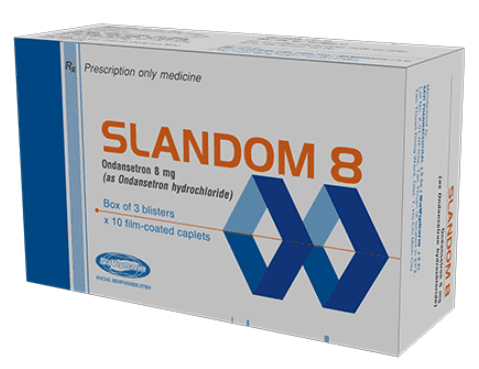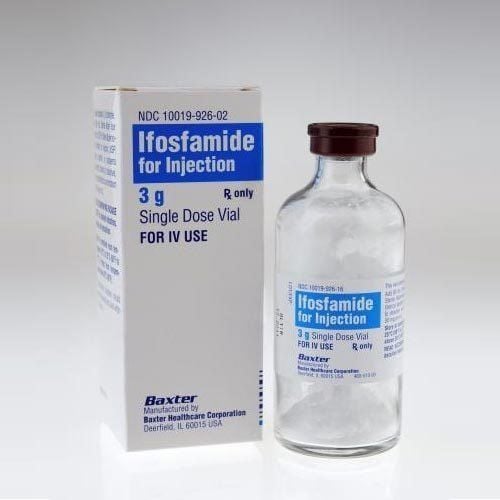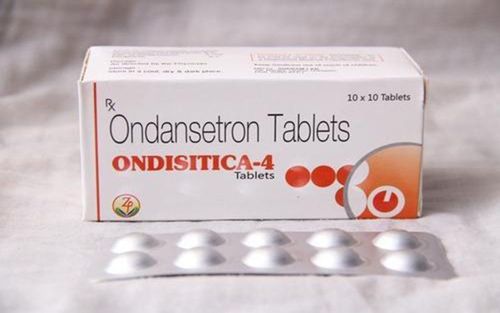This is an automatically translated article.
Stage 4 colon cancer has spread to distant organs and tissues in the body. This type of cancer usually metastasizes mainly to the liver, sometimes to the lungs, peritoneum, brain, or distant lymph nodes. Treatment for metastatic colon cancer often involves a combination of different approaches, such as surgery, radiation therapy, chemotherapy, immunotherapy, or targeted therapy.
1. Overview of stage 4 . colon cancer
Colon cancer is a type of cancer that begins in the body's large intestine. This type of cancer usually occurs mainly in older people. Colon cancer starts as small, benign (noncancerous) masses of cells called polyps that form on the inside of the colon. Over time, some of these polyps can become colon cancer.
Polyps can be small and cause few symptoms, so doctors often recommend regular screening to prevent colon cancer by finding and removing polyps before they grow. into cancer.
If not detected and treated early, cancer cells can spread and grow rapidly, becoming metastatic colon cancer or stage 4 colon cancer. In stage 4, colon cancer has spread to distant organs and tissues, such as the liver, embryo, peritoneum, brain, or lymph nodes.
End-stage colon cancer can be treated by a variety of methods to control the rapid growth of the cancer, including radiation therapy, surgery, drugs (chemotherapy, immunotherapy, or therapy). targeting method).
2. What causes metastatic colon cancer?
The specific cause of colon cancer is currently unknown. In general, colon cancer begins when healthy cells in the colon have changes or mutations in their DNA.
Healthy cells grow and divide in a sequence to keep the body functioning properly. But when the DNA of cells in the colon is damaged and becomes cancerous, they continue to divide even when new cells are not needed. When the cells accumulate, they form a noticeable tumor.
Over time, colon cancer cells can grow to invade and destroy nearby normal tissue. They can even spread to other parts of the body to form deposits there. At this point, colon cancer has turned into metastatic or terminal colon cancer.
3. Possible symptoms of metastatic colon cancer
Colon cancers in the early stages often do not cause any specific symptoms until they are in an advanced stage. Here are the signs and symptoms that patients with stage 4 colon cancer may experience, including:
Persistent change in bowel habits, including constipation, diarrhea, or changes consistency of stool Persistent discomfort in the abdomen, such as bloating, cramping, or pain Rectal bleeding or blood in stools Weakness Fatigue Unexplained weight loss If you notice any of these symptoms If persistent is noticeable, you should see your doctor soon for a diagnosis and specific treatment.
In addition, you should also talk with your doctor about when to start screening for colon cancer. Progressive guidelines generally recommend that people begin screening for this type of cancer around age 50. Your doctor may also recommend more frequent and earlier screening if you have other risk factors, such as a family history of colon cancer.

Ung thư đại tràng giai đoạn cuối gây tình trạng sụt cân không rõ lý do
4. How is metastatic colon cancer diagnosed?
If there are signs and symptoms that suggest you have colon cancer, your doctor may recommend some diagnostic tests to see if the cancer is at any stage and has spread.
Colonoscopy : Helps examine the inside of your colon. If any suspicious areas are found, the doctor will take a tissue sample (biopsy) for analysis and remove the polyp. Blood tests: Although a blood test cannot tell if you have colon cancer, it can be an important clue to help your doctor check your liver and kidney function. In addition, the blood test also helps the doctor look for a chemical produced by colon cancer, called carcinoembryonic antigen or CEA. Over time, your blood CEA levels can help your doctor predict and assess your response to treatment. If you have been diagnosed with colon cancer, your doctor may recommend other imaging tests to determine the extent of the cancer, such as stage 4 colon cancer. Determining the stage of colon cancer will help your doctor make the most appropriate treatment recommendations for you.
Tests to help determine if colon cancer has spread or not usually include CT scans of the pelvis, abdomen, and chest. If imaging tests show that the cancer has progressed and spread to other areas of the body, your doctor will conclude it is terminal colon cancer.
5. Treatment options specific to metastatic colon cancer
Treatment options and recommendations for colon cancer depend on several factors, including the stage of the cancer, the type of cancer, possible side effects, overall health, and preferences of the patient. In addition, you should also talk to your doctor about the goals of each treatment and the prospects for treatment.
The following are specific treatment options specific to stage 4 colon cancer or metastatic colon cancer, including:
5.1. Surgery If your colon cancer is at an advanced stage or your overall health is very poor, your doctor may recommend surgery to help clear up blockages in your colon and other colons. improve symptoms caused by cancer.
Although surgery does not cure late-stage colon cancer, it can relieve signs and symptoms such as bleeding, pain, or blockage of the colon.
In certain cases, when colon cancer has only metastasized to the lungs or liver, but the patient's overall health is still good, the doctor may recommend surgery or some local treatment. another to help remove the tumor. Chemotherapy is also recommended before or after surgery to prevent the cancer from coming back.
5.2. Chemotherapy In some cases of metastatic colon cancer, the use of chemotherapy drugs can help kill cancer cells. Chemotherapy for colon cancer is also often given after surgery if the cancer is larger or has spread to the lymph nodes. In this way, chemotherapy will help kill any remaining cancer cells in the body and reduce the risk of the cancer coming back.
Besides, chemotherapy can also be used before surgery to shrink large cancers and make them easier to remove with surgery. Chemotherapy is also particularly helpful in relieving symptoms of colon cancer that cannot be removed with surgery or has spread to other parts of the body. Sometimes, it is also recommended in combination with radiation therapy.
5.3. Radiation therapy Stage 4 colon cancer can also be treated with radiation therapy. In this procedure, your doctor uses high-energy sources, such as protons and X-rays, to destroy cancer-causing cells. In addition, it also helps to shrink large tumors before surgery to make it easier to remove the cancer.
When surgery is not a viable option, radiation therapy can be used to relieve symptoms such as pain caused by metastatic colon cancer. In certain cases, radiation therapy may be used in combination with chemotherapy.
5.4. Targeted Therapies Targeted drug treatments can target abnormalities in cancer cells, then stop and kill them. Targeted drugs are often combined with chemotherapy and are reserved for people with advanced colon cancer .

Ung thư đại tràng giai đoạn cuối cần được điều trị theo phương pháp phù hợp
5.5. Immunotherapy Immunotherapy is a drug treatment that uses the body's immune system to fight cancer. The immune system may not attack the cancer because the cells produce proteins that "blind" and make it impossible for the immune system's cells to recognize it. Therefore, immunotherapy is recommended to interfere with this process.
Immunotherapy is usually reserved for late-stage colon cancer. Your doctor will test the cancer cells to see if they are likely to respond to this treatment.
5.6. Palliative care This is specialized medical care that focuses primarily on relieving pain and other serious symptoms of stage 4 colon cancer. Palliative care teams aim to improve the quality of life for cancer patients and their families. This form of care may include other treatments for the patient.
When palliative care is used along with all appropriate treatments, patients with advanced colon cancer can feel more comfortable and live longer.
At Vinmec International General Hospital with a team of leading doctors and nurses with rich experience in the field of colon cancer diagnosis and treatment, with the support of a system of modern and fully equipped technology equipment professional means to diagnose and determine the disease and stage it before treatment such as: Laparoscopy, CT scan, PET-CT scan, MRI, Mammogram, histopathological diagnosis, genetic - cytological testing cells, ... help accurately detect the disease stage and advise on the best treatment for the patient.
Please dial HOTLINE for more information or register for an appointment HERE. Download MyVinmec app to make appointments faster and to manage your bookings easily.
Reference source: cancer.org - mayoclinic.org - webmd.com












